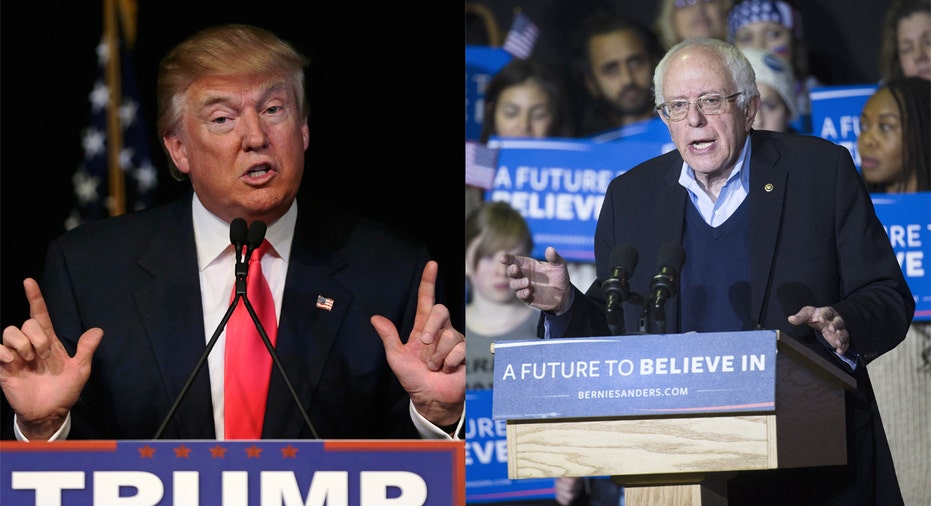After New Hampshire, Who is Poised to Win the Next Presidential Contests?

Billionaire businessman Donald Trump and Vermont Senator Bernie Sanders solidified their winner status in the New Hampshire Primary on Tuesday night.
In the Republican race, Trump received 35% of the vote to John Kasich 16%.
The Fox News Exit poll found Trump won with voters who are worried about the economy, worried about terrorism and angry about the government.
Voters also said Trump is the best candidate to handle the economy with 40% to Kasich's 19%.
On the Democratic side, It was Sanders with 60% and Hillary Clinton 38%.
Sanders enjoyed strong support from voters under 45 years old, independents, voters whose top concern is income inequality and those looking for an honest and trustworthy candidate.
The economy and jobs was the big topic with Sanders getting 59% to Hillary Clinton's 38%.
All eyes are on the next two major presidential contests in South Carolina for Republicans and Nevada for Democrats.
On the GOP side, the South Carolina primary has historically predicted the eventual Republican nominee from 1980-2008, priding itself on choosing a winner. Only once did voters get it wrong when they picked Newt Gingrich over Mitt Romney in 2012.
“South Carolina primary voters have a desire to pick a person who is going to be the winner and is going to be someone who can win the general election,” said Gibbs Knotts, political science chair at the College of Charleston in South Carolina.
Evangelicals make up 35% of the Republican electorate in the Palmetto state, a key demographic of voters that Knotts says candidates must secure in the upcoming primary. According to a recent Gallup poll, 51% of South Carolinians classify themselves as "very religious."
“It’s a group that Ted Cruz did the best with in Iowa, so I think that gives him an advantage in South Carolina and will make him someone who will be near the top of the field,” said Knotts.
Endorsements also carry weight in South Carolina. Knotts says with Florida Senator Marco Rubio’s recent endorsement from South Carolina Senator Tim Scott, he could be poised to take on his biggest Republican rivals.
“If all the 'establishment voters' in South Carolina unite behind Rubio or Kasich than it will challenge Cruz and Trump who are competing for the same pool of voters," said Knotts.
The South Carolina primary will be held on Saturday February 20, the same day Democrats will duke it out in the Nevada caucuses. While Sanders is coming off a fresh win in New Hampshire he does face stiff competition in the Western caucus.
“Nevada it’s not quite a minority-majority state, there are a lot of Latinos,” said Ted Jelen, political science professor at University of Nevada in Las Vegas. “Latinos are a little more volatile in their voting behavior than African Americans. They are a little less predictable and turn out is less predictable.”
Hispanics and African Americans make up approximately one third of caucus-goers, an electorate that Jelen says Sanders is lagging in. In order to win Nevada you must be able to mobilize Hispanic voters and have a “really good ground game” which he says Clinton has. About a year ago, the former Secretary of State established highly organized field teams in the Silver State.
“Hillary has been running Spanish ads and working the non-white vote which is mostly made up of Mexican Americans here,” said Jelen.
According to a CNN-ORC poll in October, a survey of likely Nevada caucus-goers, Clinton led Sanders 58% to 36% in a race with Martin O'Malley.
“I think it will be interesting to see if Hillary Clinton can parlay her very strong support with African Americans into support from Latinos as well,” said Jelen. "I don't see Sanders having a chance here."



















